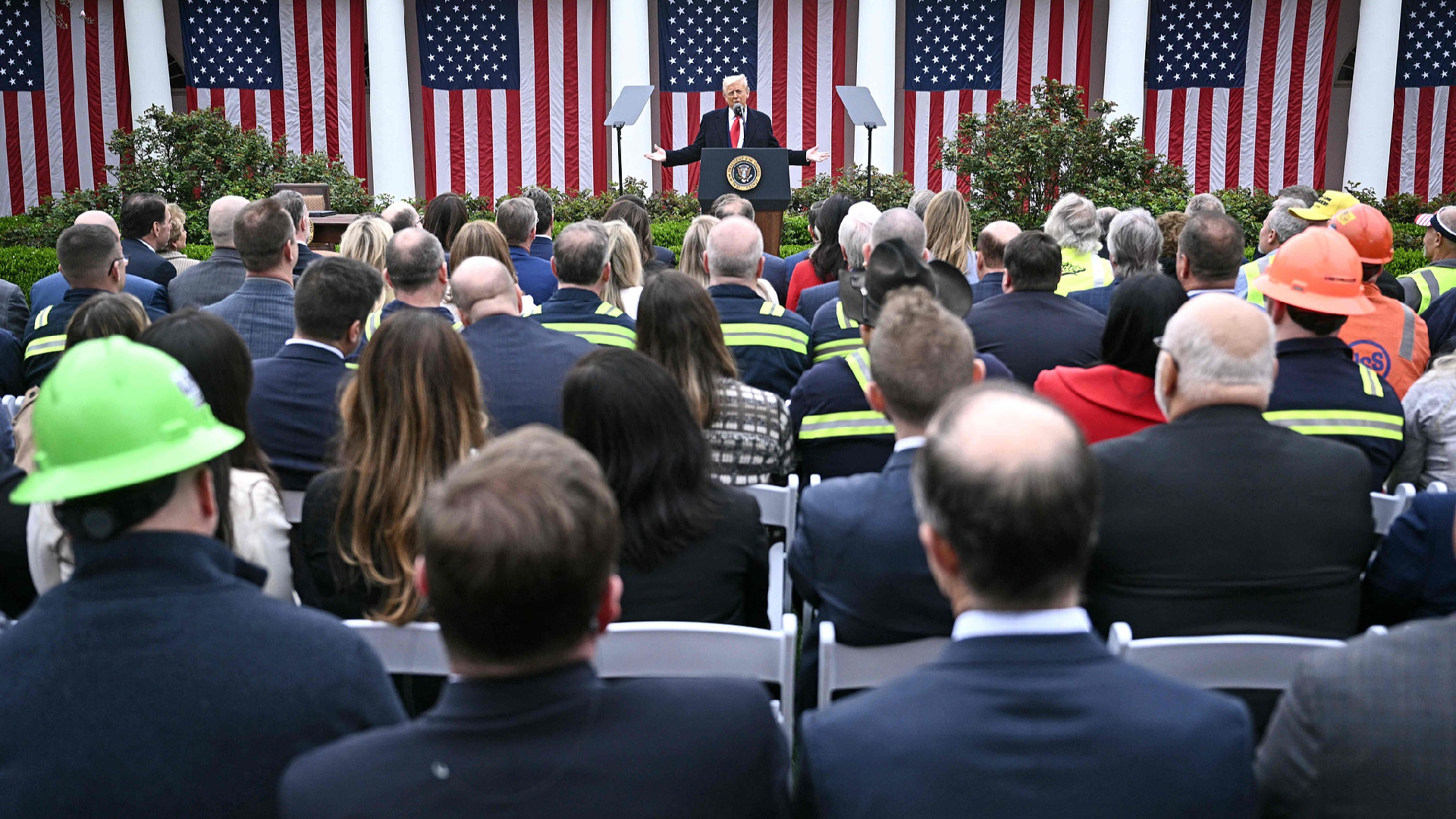Media on Trump's tariffs: U.S. trade policies 'back to late 1800s'
U.S. President Donald Trump's extensive tariffs have made waves in news reports around the globe. Below are some of the major headlines, accompanied by insights from experts around the world.

Here are some key headlines and expert perspectives from around the world.
Thomas Friedman, a three-time Pulitzer Prize winner and New York Times columnist, expressed his worries regarding U.S. tariffs on China in an article titled "I Just Saw the Future. It Was Not in America." He emphasized the need for a win-win rather than a lose-lose trading relationship between the two largest economies.
"My problem is with Trump's magical thinking that you just put up walls of protection around an industry and – presto! – in short order, U.S. factories will blossom and make those products in America at the same cost with no burden for U.S. consumers," Friedman stated.
Friedman pointed out that every sophisticated product today—ranging from cars to iPhones to mRNA vaccines—originates from intricate global manufacturing ecosystems. "That is why those products get steadily better and cheaper."
He warned that "if you are protecting the auto industry and you think just putting up a tariff wall will do it, you don't know anything about how cars are made." Friedman further noted that American car manufacturers would require years to replace the global supply chains they rely on and produce everything domestically.
Additionally, Friedman offered suggestions for fostering a mutually beneficial trade with China, such as encouraging Chinese companies to enter the U.S. market by licensing their leading manufacturing innovations to American firms or partnering with them to create joint manufacturing facilities.
"This, of course, would require a huge effort to rebuild trust, which is now almost entirely missing in the relationship. It's the only way to get to reasonably win-win trade. Without it, we're heading for lose-lose," he added.
The Economist reported that Trump's tariffs are reminiscent of policies from the 19th century. "Few expected him to go quite so far. In a stunning shift in American economic strategy, Donald Trump has yanked up tariffs across the board," the article stated in its introduction.
It explained that “coming on top of other tariffs announced since his return to the White House, the result is that, in the space of ten weeks, he has erected a wall of protection around the American economy akin to that of the late 1800s."
"For Mr. Trump the measures represent an attempt to bring a long era of increasingly free global trade to a definitive end," the article continued. It criticized Trump for ignoring the fact that globalization has brought significant prosperity to the U.S. and that the country has largely shaped international trade rules. "Now, if Mr. Trump gets his way, the economic order that was slowly and steadily built up in the aftermath of World War II is dead and buried."
An Associated Press report titled "Trump announces sweeping new tariffs to promote U.S. manufacturing, risking inflation and trade wars" highlighted experts' concerns regarding the implications of the tariffs.
"With today's announcement, U.S. tariffs will approach levels not seen since the Smoot-Hawley Tariff Act of 1930, which incited a global trade war and deepened the Great Depression," warned Scott Lincicome and Colin Grabow of the Cato Institute.
Representative Suzan DelBene, chair of the Democratic Congressional Campaign Committee, criticized the tariffs as indicative of "the chaos and dysfunction" within the Trump administration. She noted that Trump raised tariffs without Congressional approval, stating, "The president shouldn't be able to do that. This is a massive tax increase on American families, and it's without a vote in Congress. President Trump promised on the campaign trail that he would lower costs on day one. Now he says he doesn't care if prices go up – he’s broken his promise."
According to a Reuters/Ipsos poll, Trump's approval rating has dipped to 43 percent, the lowest since he regained the presidency.
Approximately half of the respondents—52 percent—agreed that increasing tariffs on autos and auto parts, part of Trump's recent tariff announcements, would adversely affect people they know. About the same proportion believed that raising tariffs would cause more harm than benefit. A third of Americans, primarily from Trump's Republican base, disagreed with the notion that tariffs would be harmful.
Olivia Brown contributed to this article for TROIB News
Find more stories on Business, Economy and Finance in TROIB business












